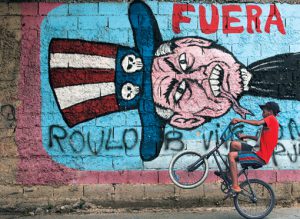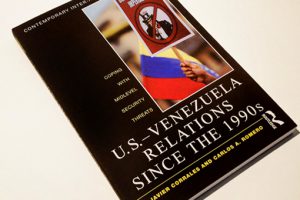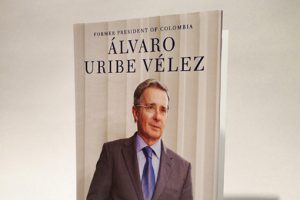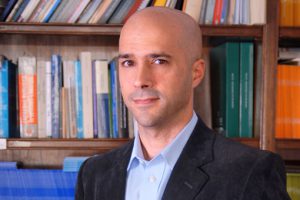
Gringo Stay Here!
Lea una versión en español aquí. “Why do they hate us?” This question1, on so many U.S. citizens’ minds over the decade following the September 11, 2001, attacks, is often asked about Islamic extremists and even the broader Muslim world. Among the most common responses is that “they” resent U.S. foreign policy in the Middle … Read more

The popular tendencies that led to ALBA remain as relevant today as they were at its creation.
The death of President Hugo Chávez is a great loss for the Alianza Bolivariana para los Pueblos de Nuestra América (Bolivarian Alliance for the Peoples of Our America—ALBA). But it is unwise to conclude from this that ALBA will disappear altogether. Chávez achieved influence for his presidency and for ALBA by expressing and representing new … Read more
Profile: Patricio Villareal
Mexican entrepreneur Patricio Villareal has discovered something most of those opposing health care reform in the United States could never imagine: making basic health care accessible and affordable can be a profitable business. In 1994, Patricio and his brother Ricardo co-founded Imagen Dental, a company that provides world-class dental, optical and hearing services to middle … Read more

[i]Multinacionais brasileiras: competências para a internacionalização[/i] by Afonso Fleury and Maria Tereza Leme Fleury
Brazil, the country of the future” was a sarcastic cliché popular among Brazilians to describe a country striving to reach an economic potential that always seemed just out of reach. The past decade, however, offered hope that Brazil was finally fulfilling the cliché’s promise. As hyperinflation became a distant memory, the hemisphere’s largest country joined … Read more

[i]U.S.-Venezuela Relations Since the 1990s: Coping with Midlevel Security Threats[/i] by Javier Corrales and Carlos A. Romero
Diplomacy,” Winston Churchill once said, “is the art of telling people to go to hell in such a way that they ask for directions.” Judging by this definition, Venezuelan President Hugo Chávez is not a natural diplomat. His foreign policy is blunt and acerbic: if he dislikes you, he tells you plain and simple, frequently … Read more

No Lost Causes by Álvaro Uribe Vélez
During his eight years of government, former Colombian President Álvaro Uribe took micro-management to levels never seen before. “I’ve always believed in combining a macro vision with involvement in the small details of execution,” writes Uribe in his presidential memoir, No Lost Causes, written with the help of Brian Winter. “In retrospect, when I look … Read more
Aerospace: An Emerging Mexican Industry
Airplanes have many parts, from seatbelt buckles and massive brake pads to thousands of precision-shaped screws. In fact, Boeing, the U.S. aerospace behemoth, brags that its 747s are composed of 6 million individual pieces. Multiply that by 35,000—the number of new airplanes needed to meet world demand over the next 15 years—and the opportunities for … Read more
Innovation: The Case of Chile
How do you “start up” a start-up ecosystem? That was the question facing Chile in 2010, as the Corporación de Fomento de la Producción (Chilean Economic Development Agency—CORFO) and the Chilean Ministry of Economy looked for ways to encourage innovation and entrepreneurship. Despite Chile’s strong economic performance, its business culture did not have a history … Read more
Migration: Spain’s Reverse Flows
Latin America has historically played an important role in Spain’s migratory cycles—both as a sender and as a recipient. Spanish political immigration to the hemisphere surged following the Spanish Civil War (1936–1939) and again after World War II, when Spaniards flocked to Latin America for economic reasons. The flow reversed with the late-1980s economic crises … Read more
Truces show that gangs are more sophisticated, not that they have renounced the criminal lifestyle.
El Salvador, a country that has struggled with crime control issues, insecurity and weak public institutions for decades—and ranks as the second most violent nation in the world—has recently witnessed a shaky truce between the country’s main rival pandillas (gangs), Mara Salvatrucha (MS-13) and Barrio 18. The truce is praised by government officials and supporters as a … Read more
The truce provides some breathing space for the government to create legal opportunities for Salvadoran youth.
After decades of gang-related violence, resulting in unfathomable bloodshed and a worsening security crisis, change has come to El Salvador. One reason is the truce signed by the notorious street gangs Mara Salvatrucha (MS-13) and Barrio 18—now nearing its one-year anniversary. In the process, El Salvador has transformed itself from a country with one of the … Read more

Politics Innovator: Edwin Escobar, Guatemala
Edwin Escobar dreams of turning Villa Nueva—Guatemala’s second most populous city—into the “next Bogotá.” The vision of the new mayor of this colonial-era city, just 10 miles (16 kilometers) south of the capital, might seem like conventional political rhetoric. But Escobar, who took office just last year, is not a conventional politician. A self-described “serial … Read more

Business Innovator: Bedy Yang, United States/Brazil
Silicon Valley may be the technology capital of the world, but Brazilian cities like São Paulo and Rio de Janeiro are giving the Bay Area a run for its money. A booming economy and an increasingly connected middle class that grew by 50 percent from 2003 to 2009 have made Brazil a logical new hub … Read more

Civic Innovator: Álvaro Herrero, Argentina
Álvaro Herrero could have pursued any career of his choice. His impressive academic credentials include a law degree from the Universidad Nacional de la Plata in his native Argentina, an MA in Latin American studies from Georgetown and a PhD in political science from Oxford. But in 2005, he opted instead for a job as … Read more

Arts Innovator: Andrea Baranenko, Venezuela
Latin America is moving forward, but Venezuela is moving in the opposite direction,” says Andrea Baranenko, a 28-year-old Venezuelan filmmaker whose recent documentary, Yo Indocumentada (I, Undocumented), exposes the struggles of transgender people in her native country. The film, Baranenko’s first feature-length production, tells the story of three Venezuelan women fighting for their right to … Read more


